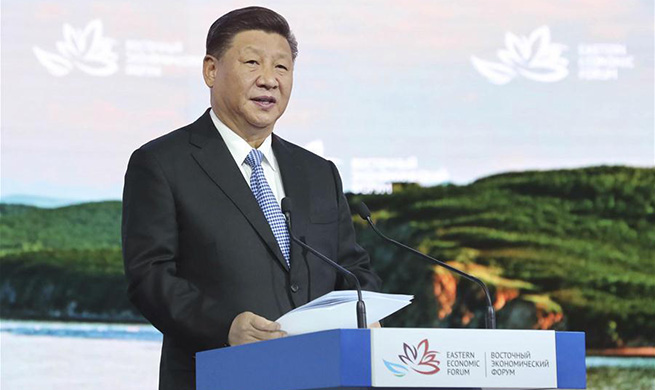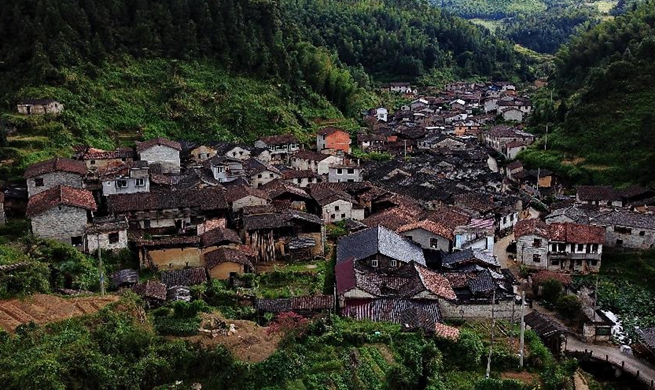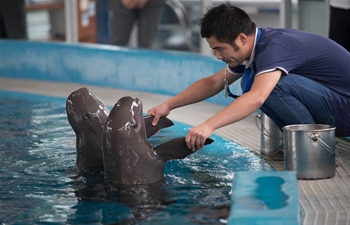BERLIN, Sept. 13 (Xinhua) -- Berlin and Rome have reached an agreement whereby the latter will take back asylum seekers who arrive in Germany after having previously been formally registered in Italy, German interior minister Horst Seehofer (CSU) announced on Thursday.
Addressing delegates during a speech in the federal parliament, Seehofer said that the only thing that was now missing before the bilateral deal could take force was for it to be signed by his Italian counterpart Matteo Salvini, which would take place in the coming days.
The German-Italian cooperative effort to prevent so-called "secondary migration" of asylum seekers within the Schengen free travel zone mirrors deals signed earlier by Seehofer with the governments of Spain and Greece. The measures concern asylum seekers for whom countries other than Germany are responsible for under the EU's "Dublin III" asylum regime.
Authorities in Germany are generally only able to refuse entry to foreign citizens without documents at the border if they did not plan to file an application for humanitarian residence in the country itself.
Under the new bilateral regulations, this circumstance regulation will no longer apply to non-EU nationals who attempt to enter Germany illicitly after first setting foot in Spain, Greece or Italy. Individuals who indicate that they want to obtain asylum upon arrival will still be detained and returned to their first entry point into the EU within 48 hours.
The number of asylum seekers who arrive in Germany has fallen dramatically since the height of the "refugee crisis" in 2015. Nevertheless, Seehofer recently threatened to resign unless chancellor Merkel endorsed a controversial "migration master plan" proposal developed by his ministry to automatically turn back all asylum seekers at the German border who have previously been registered elsewhere in the bloc.
The ultimatum imposed by the interior minister marked an unprecedented show of cabinet disobedience and briefly threatened to trigger the collapse of the ruling "grand coalition" government.
A last-minute compromise was ultimately reached between Merkel and Seehofer to establish so-called transit centers where affected asylum seekers will be held before organizing their return to the responsible member state on the basis of prior bilateral agreements such as those now signed with Spain, Greece and Italy.













